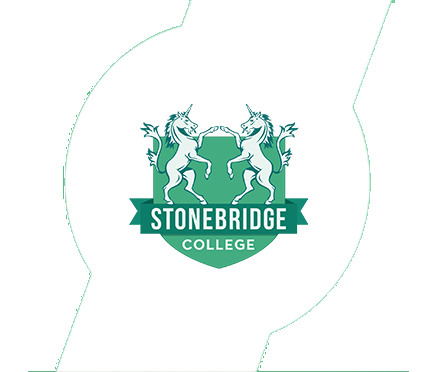Access to Higher Education Diploma (Veterinary Science).

Access to Higher Education Diploma (Veterinary Science)
This Course at a Glance
- Help animals recover from injury and illness
- Support the health of numerous species from birth to old age
- Secure a place on a veterinary degree without A Levels
- No classes, timetables, or exams
- Flexible payment options
- Study online at home
About Your Diploma
Have you always loved animals and wanted the chance to help them in your career? Now’s your chance by studying an online course that acts as a route to a job as a Veterinarian or Vet Nurse.
If this has been a passion of yours but the A Levels to get into university stopped you in your tracks, the Access to Higher Education Diploma (Veterinary Science) is the answer you’ve been looking for. As a Level 3 qualification and the equivalent to three A Levels, you can meet veterinary degree requirements quickly and conveniently.
Being a vocational course that typically takes less than a year to complete, the veterinary science diploma is designed to efficiently develop your knowledge on subjects surrounding the role and responsibilities of a veterinary professional.
Throughout the course, you will learn about important topics like animal physiology, animal behaviour and welfare, animal digestive and dietary needs and more!
The course also includes modules that are designed to equip you with the study skills for university, so you are more than prepared for degree level veterinary studies. You can explore the rest of the modules covered in this course by viewing the ‘Syllabus’ tab.
Getting Started
Studying with Stonebridge Associated Colleges provides a convenient and flexible approach to education. You can learn on your terms as there are no timetables or classes, but you will receive an Individual Learning Plan that outlines your submission deadlines and helps you stay on track. Not only that, you will get full support from a team of dedicated professional tutors.
You can also relax in the knowledge that you are gaining a quality education, as this Access to Higher Education Diploma (Veterinary Science) is a nationally recognised Level 3 qualification that is regulated by the Quality Assurance Agency for Higher Education (QAA). You have 24 months to complete the course, but on average, our students take 9-12 months to complete their course.
*Entry requirements differ between universities - Check that this qualification will be accepted before you enrol.
On successful completion of the Skills & Education Group Access Access to Higher Education Diploma (Veterinary Science), you will receive a QAA recognised Access to HE Diploma at Level 3 (QAA aim code: 40014757). This course has also been assigned 60 credits.
Skills & Education Group Access are a national Awarding Organisation, regulated by Ofqual, the Quality Assurance Agency for Higher Education (QAA) and Qualifications Wales, to develop and award nationally recognised qualifications.
Skills & Education Group Access work in partnership with employers, training providers, colleges, universities, schools and voluntary and community organisations to offer vocational credit-based qualifications, Access to Higher Education Diplomas and quality assured Customised Accreditation that enables learners to gain employment or to progress into further learning and Higher Education. They also Quality Endorse organisations internal training and skills delivery.
Professional Membership
On completion of this course you will be eligible to join the following Professional Associations(s):
An access validating agency with a strong social purpose to recognise achievement, particularly for those who have benefited least from their previous educational experiences, Skills and Education Group Access supports the needs of learners, providers, businesses and communities.
As part of the Awarding Organisation requirements, to receive certification for this training course you must be subscribed for a minimum period of 9 months. The minimum subscription period is measured in total months subscribed, which do not have to be consecutive.
This means that if your personal circumstances change (time available to study, financial pressures etc.), you can cancel/pause your study and payments at any time. If you decide to return to your studies at a later date, you can simply reactivate your subscription and continue from where you left off (we will save all your course progress). Using our subscription service you are not tied into a credit agreement.
To study an Access to HE Diploma you must be resident in the UK and have a UK postcode.
You must hold Level 2 qualifications in both English and Maths, or be working towards them alongside studying your Access to Higher Education Diploma.
University Entry Criteria
It must be reiterated that each university will set its own admission criteria. So, you must check with your desired institution if your Access to HE Diploma and other qualifications will be accepted.
In many cases, to get started on healthcare courses at university, you will need:
- A certain number of credits passed with a merit or a distinction grade
- A face-to-face interview at the university
- Literacy and numeracy assessments provided by the university
- Course-related work placements or work experience
- GCSE Grade C/4 or above in Maths and English (or equivalent Level 2 such as Functional Skills/Key Skills, etc.)
It is your responsibility to check that your Access to HE Diploma will be accepted as part of these entry requirements for your chosen degree. Stonebridge will not be held accountable if completing this Access to Higher Education Diploma doesn’t secure you a position with a higher education institution.
Minimum Age Restriction
This course is ideally suited to those who have completed full-time education but have not achieved the grades required to get into university.
Average Completion Timeframe
The average time it takes our learners to complete the course is 9-12 months.
Assessment Requirements
A range of assessment methodologies are used, including: academic report, essay, case study analysis, illustrated report, journal article, portfolio, academic poster, presentation (video and audio recording), developing promotional activity, series of questions, academic writing skills tasks.
In addition to the qualification units, you will also be required to complete short introductory tasks at the start of your course to support the development of your academic study skills.
Exams Required
There are no exams included in the assessment of the course.
Additional Requirements
Learners must be actively studying for a minimum of six months before results can be ratified and certificates ordered. The six month period does not start until you have completed and passed the course induction and you must be submitting assignments regularly (in line with the deadlines in your Individual Learning Plan) to meet this six month requirement. Certificates can only be issued once your course is paid for in full.
Certification Timeframe
You can expect to receive your certificate 12-16 weeks from your final assignment being marked and graded, depending on the time of year. You will be provided with regular updates throughout the certification process so that you are fully informed of your individual timeframes.
Module 1: Academic Writing Skills
On successful completion of this module, you will:
- Be able to structure a written response
- Be able to develop a structured response to a plan
- Be able to present the response appropriately for audience and purpose
- Understand how to apply academic writing principles to own work
Module 2: Reading and Note Making
On successful completion of this module, you will:
- Understand a range of reading strategies
- Understand the use of language in terms of the purpose and context of a range of texts
- Be able to use methods for developing notes from a range of sources
Module 3: The Structure and Function of Cells
On successful completion of this module, you will:
- Understand cellular structure and organisation
- Be able to analyse cellular activity
- Be able to analyse the cell cycle
Module 4: Atoms, Bonds and Structure
On successful completion of this module, you will:
- Understand atomic structure
- Understand bonding, structure and properties
- Be able to analyse intermolecular forces
Module 5: Animal Cells, Locomotion and Senses
On successful completion of this module, you will:
- Understand the biology of animal cells
- Understand locomotion of different non-human animals
- Understand sensory organs in non-human animals
Module 6: Cell Division and Genetics
On successful completion of this module, you will:
- Understand mitosis
- Understand meiosis
- Understand genetic variation
Module 7: Animal Behaviour and Welfare
On successful completion of this module, you will:
- Understand non-human animal behaviour
- Understand non-human animal communication
- Understand animal welfare needs and issues affecting welfare of animals in specific contexts
- Understand the role of animal welfare legislation and the role of animal welfare organisations in the UK
Module 8: Respiration in Cells
On successful completion of this module, you will:
- Understand the principles of energy release from respiratory substrates in living organisms
- Understand the aerobic respiratory pathway of glycolysis, Krebs cycle and the electron transport system
- Understand how anaerobic respiration releases less energy than aerobic respiration
Module 9: The Digestive System and Dietary Needs of Animals
On successful completion of this module, you will:
- Understand nutrient requirements and sources for an animal
- Understand the need for a balanced diet in animals
- Understand digestive systems of animals and the impact of ruminating
- Be able to calculate the energy requirements of animals at different life stages
- Understand the causes, signs, impact and treatments for issues arising from nutritional imbalance
Module 10: Organic Concepts and Hydrocarbons
On successful completion of this module, you will:
- Understand general concepts of organic chemistry
- Understand the chemistry of alkanes
- Understand the chemistry of alkenes
- Understand the chemistry of arenes
Module 11: Animal Physiology
On successful completion of this module, you will:
- Understand feeding behaviours of different non-human animals
- Understand the respiratory and circulatory differences between different animals
- Understand reproductive processes and factors of a range of different animals
Module 12: Chemistry of Drugs and Medicines
On successful completion of this module, you will:
- Understand the key definitions used in medicinal chemistry
- Understand the significance of the molecular structure of drugs upon their function
- Understand analytic methods used for drug detection
- Understand the importance of isomerism in drug action
- Be able to analyse common processes involved in drug design
Module 13: Numerical Analysis of Statistical Data
On successful completion of this module, you will:
- Be able to analyse a set of data
- Be able to analyse data in a frequency table
- Be able to analyse data in a grouped frequency table
- Be able to analyse bivariate data
Module 14: Kinetics, Energetics, Equilibria and Acid-Base Equilibria
On successful completion of this module, you will:
- Understand chemical kinetics
- Understand energetics
- Understand chemical equilibria
- Understand acid-base equilibria
Module 15: Ecology and Environmental Science
On successful completion of this module, you will:
- Understand habitats, ecosystems and energy flow
- Understand ecosystem management
- Be able to evaluate the role of the UK government and non-governmental organisations (NGOs) involved with environmental protection
In addition to the qualification units, you will also be required to complete a course induction which comprises of three short introductory tasks to support the development of your academic study skills.

Your work will be assessed through assignments at the end of each unit. These will provide you with the opportunity to check up on your knowledge and advance. After each assignment, your tutor will offer feedback to help you not only progress further but also improve your skills. This Access to HE Diploma is a Level 3 Quality Assurance Agency (QAA) regulated qualification.
In addition to the qualification units, you will also be required to complete short introductory tasks at the start of your course to support the development of your academic study skills.
To successfully achieve your qualification, you will need a total of 60 credits. Of these, 45 will come from graded units of academic content, while the following 15 will be drawn from ungraded units concerning study skills.
VALUE
Annual
- 100% Online
- Full Tutor Support
- No Credit Checks or Credit Agreement
Monthly
- 100% Online
- Full Tutor Support
- No Credit Checks or Credit Agreement
Free 7-Day Trial
Register for a 7-day FREE trial (your payment details will be taken at checkout but not charged). Once the trial period ends you will be charged the monthly fee unless you cancel. Cancel Anytime. No Commitment.- 100% Online
- Full Tutor Support
- No Credit Checks or Credit Agreement
This Course at a Glance
- Help animals recover from injury and illness
- Support the health of numerous species from birth to old age
- Secure a place on a veterinary degree without A Levels
- No classes, timetables, or exams
- Flexible payment options
- Study online at home
About Your Diploma
Have you always loved animals and wanted the chance to help them in your career? Now’s your chance by studying an online course that acts as a route to a job as a Veterinarian or Vet Nurse.
If this has been a passion of yours but the A Levels to get into university stopped you in your tracks, the Access to Higher Education Diploma (Veterinary Science) is the answer you’ve been looking for. As a Level 3 qualification and the equivalent to three A Levels, you can meet veterinary degree requirements quickly and conveniently.
Being a vocational course that typically takes less than a year to complete, the veterinary science diploma is designed to efficiently develop your knowledge on subjects surrounding the role and responsibilities of a veterinary professional.
Throughout the course, you will learn about important topics like animal physiology, animal behaviour and welfare, animal digestive and dietary needs and more!
The course also includes modules that are designed to equip you with the study skills for university, so you are more than prepared for degree level veterinary studies. You can explore the rest of the modules covered in this course by viewing the ‘Syllabus’ tab.
Getting Started
Studying with Stonebridge Associated Colleges provides a convenient and flexible approach to education. You can learn on your terms as there are no timetables or classes, but you will receive an Individual Learning Plan that outlines your submission deadlines and helps you stay on track. Not only that, you will get full support from a team of dedicated professional tutors.
You can also relax in the knowledge that you are gaining a quality education, as this Access to Higher Education Diploma (Veterinary Science) is a nationally recognised Level 3 qualification that is regulated by the Quality Assurance Agency for Higher Education (QAA). You have 24 months to complete the course, but on average, our students take 9-12 months to complete their course.
*Entry requirements differ between universities - Check that this qualification will be accepted before you enrol.
On successful completion of the Skills & Education Group Access Access to Higher Education Diploma (Veterinary Science), you will receive a QAA recognised Access to HE Diploma at Level 3 (QAA aim code: 40014757). This course has also been assigned 60 credits.
Skills & Education Group Access are a national Awarding Organisation, regulated by Ofqual, the Quality Assurance Agency for Higher Education (QAA) and Qualifications Wales, to develop and award nationally recognised qualifications.
Skills & Education Group Access work in partnership with employers, training providers, colleges, universities, schools and voluntary and community organisations to offer vocational credit-based qualifications, Access to Higher Education Diplomas and quality assured Customised Accreditation that enables learners to gain employment or to progress into further learning and Higher Education. They also Quality Endorse organisations internal training and skills delivery.
Professional Membership
On completion of this course you will be eligible to join the following Professional Associations(s):
An access validating agency with a strong social purpose to recognise achievement, particularly for those who have benefited least from their previous educational experiences, Skills and Education Group Access supports the needs of learners, providers, businesses and communities.
Module 1: Academic Writing Skills
On successful completion of this module, you will:
- Be able to structure a written response
- Be able to develop a structured response to a plan
- Be able to present the response appropriately for audience and purpose
- Understand how to apply academic writing principles to own work
Module 2: Reading and Note Making
On successful completion of this module, you will:
- Understand a range of reading strategies
- Understand the use of language in terms of the purpose and context of a range of texts
- Be able to use methods for developing notes from a range of sources
Module 3: The Structure and Function of Cells
On successful completion of this module, you will:
- Understand cellular structure and organisation
- Be able to analyse cellular activity
- Be able to analyse the cell cycle
Module 4: Atoms, Bonds and Structure
On successful completion of this module, you will:
- Understand atomic structure
- Understand bonding, structure and properties
- Be able to analyse intermolecular forces
Module 5: Animal Cells, Locomotion and Senses
On successful completion of this module, you will:
- Understand the biology of animal cells
- Understand locomotion of different non-human animals
- Understand sensory organs in non-human animals
Module 6: Cell Division and Genetics
On successful completion of this module, you will:
- Understand mitosis
- Understand meiosis
- Understand genetic variation
Module 7: Animal Behaviour and Welfare
On successful completion of this module, you will:
- Understand non-human animal behaviour
- Understand non-human animal communication
- Understand animal welfare needs and issues affecting welfare of animals in specific contexts
- Understand the role of animal welfare legislation and the role of animal welfare organisations in the UK
Module 8: Respiration in Cells
On successful completion of this module, you will:
- Understand the principles of energy release from respiratory substrates in living organisms
- Understand the aerobic respiratory pathway of glycolysis, Krebs cycle and the electron transport system
- Understand how anaerobic respiration releases less energy than aerobic respiration
Module 9: The Digestive System and Dietary Needs of Animals
On successful completion of this module, you will:
- Understand nutrient requirements and sources for an animal
- Understand the need for a balanced diet in animals
- Understand digestive systems of animals and the impact of ruminating
- Be able to calculate the energy requirements of animals at different life stages
- Understand the causes, signs, impact and treatments for issues arising from nutritional imbalance
Module 10: Organic Concepts and Hydrocarbons
On successful completion of this module, you will:
- Understand general concepts of organic chemistry
- Understand the chemistry of alkanes
- Understand the chemistry of alkenes
- Understand the chemistry of arenes
Module 11: Animal Physiology
On successful completion of this module, you will:
- Understand feeding behaviours of different non-human animals
- Understand the respiratory and circulatory differences between different animals
- Understand reproductive processes and factors of a range of different animals
Module 12: Chemistry of Drugs and Medicines
On successful completion of this module, you will:
- Understand the key definitions used in medicinal chemistry
- Understand the significance of the molecular structure of drugs upon their function
- Understand analytic methods used for drug detection
- Understand the importance of isomerism in drug action
- Be able to analyse common processes involved in drug design
Module 13: Numerical Analysis of Statistical Data
On successful completion of this module, you will:
- Be able to analyse a set of data
- Be able to analyse data in a frequency table
- Be able to analyse data in a grouped frequency table
- Be able to analyse bivariate data
Module 14: Kinetics, Energetics, Equilibria and Acid-Base Equilibria
On successful completion of this module, you will:
- Understand chemical kinetics
- Understand energetics
- Understand chemical equilibria
- Understand acid-base equilibria
Module 15: Ecology and Environmental Science
On successful completion of this module, you will:
- Understand habitats, ecosystems and energy flow
- Understand ecosystem management
- Be able to evaluate the role of the UK government and non-governmental organisations (NGOs) involved with environmental protection
In addition to the qualification units, you will also be required to complete a course induction which comprises of three short introductory tasks to support the development of your academic study skills.

Your work will be assessed through assignments at the end of each unit. These will provide you with the opportunity to check up on your knowledge and advance. After each assignment, your tutor will offer feedback to help you not only progress further but also improve your skills. This Access to HE Diploma is a Level 3 Quality Assurance Agency (QAA) regulated qualification.
In addition to the qualification units, you will also be required to complete short introductory tasks at the start of your course to support the development of your academic study skills.
To successfully achieve your qualification, you will need a total of 60 credits. Of these, 45 will come from graded units of academic content, while the following 15 will be drawn from ungraded units concerning study skills.
Our Advisors.
Our team of course advisors are keen to help.
Call us now on 0121 392 8288
Alternatively, please complete the form below and we’ll get back to you as soon as possible.
Our student support team is here for you.











